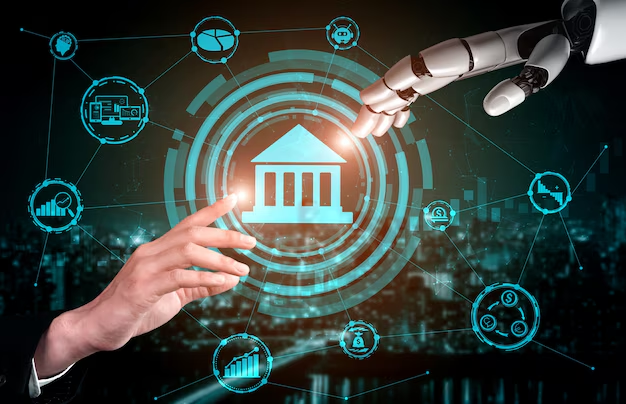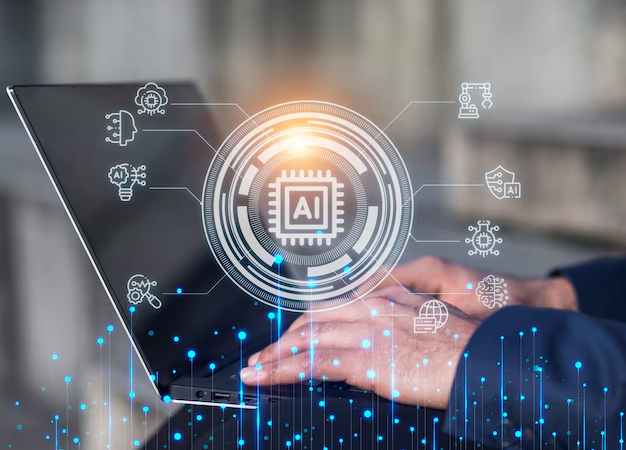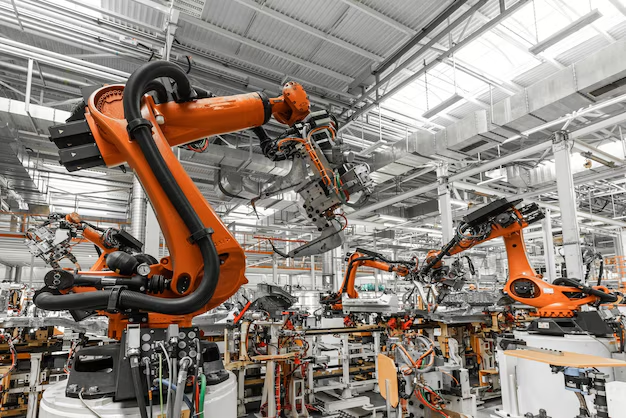
ENABLING INNOVATION
Sinister Brain
Transforming how you use Artificial Intelligence
Researching Innovations

Law
AI can revolutionize law firms by automating time-consuming tasks, such as legal research, document review, and contract analysis, allowing attorneys to focus on higher-value work. AI-powered tools improve case preparation through predictive analytics, providing insights into potential outcomes based on historical data. Natural language processing enables efficient e-discovery, summarizing large volumes of documents quickly. Additionally, AI enhances client services by streamlining communication, automating routine inquiries, and ensuring timely updates. By leveraging AI, law firms can improve efficiency, reduce costs, and deliver more precise and strategic legal support.

Finance
AI empowers financial institutions to enhance operations, improve customer experiences, and mitigate risks. Through advanced analytics, AI enables accurate credit scoring, fraud detection, and risk assessment, ensuring secure transactions. Predictive modeling optimizes investment strategies and market forecasting. AI-powered chatbots and virtual assistants provide personalized customer support, streamlining account management and inquiries. Additionally, AI automates regulatory compliance, reducing errors and ensuring adherence to evolving standards. By leveraging AI, financial institutions can drive innovation, increase efficiency, and maintain a competitive edge in a rapidly evolving industry.

Healthcare
AI supports healthcare organizations by improving diagnostics, enhancing patient care, and optimizing operations. Machine learning models analyze medical data to assist in early disease detection and personalized treatment plans. AI-powered tools streamline administrative tasks like scheduling, billing, and patient records management, allowing healthcare professionals to focus on patient care. Predictive analytics help forecast patient needs and resource allocation, while natural language processing simplifies medical documentation. By leveraging AI, healthcare organizations can deliver more accurate, efficient, and patient-centered care while reducing operational costs.

Marketing
AI transforms marketing by delivering data-driven insights, automating repetitive tasks, and enabling highly personalized customer experiences. AI-powered analytics identify trends and predict consumer behavior, optimizing campaign strategies. Tools like chatbots and recommendation engines provide tailored interactions, boosting engagement and conversions. Content generation and ad targeting are streamlined with AI, ensuring messages reach the right audience at the right time. By leveraging AI, marketers can increase efficiency, maximize ROI, and build stronger, more meaningful connections with their customers.

Retail
AI can transform retail by enhancing customer experiences, optimizing operations, and driving sales. It powers personalized product recommendations, dynamic pricing, and targeted marketing based on customer behavior. AI-driven analytics improve inventory management by forecasting demand and reducing waste. In-store, AI supports cashier-less checkouts, virtual try-ons, and smart shelves that track stock levels. Retailers also benefit from AI chatbots for 24/7 customer support and sentiment analysis to refine strategies. By automating routine tasks and delivering actionable insights, AI empowers retailers to stay competitive and responsive to consumer needs.

Technology
AI enhances Information Technology (IT) by automating routine tasks, optimizing system performance, and improving cybersecurity. It enables predictive maintenance of hardware, automated troubleshooting, and streamlined IT support through AI-driven chatbots. AI enhances network management by identifying and addressing potential issues in real-time. In cybersecurity, AI detects and mitigates threats using advanced anomaly detection and machine learning models. Additionally, AI facilitates data analysis and decision-making, enabling IT teams to implement smarter solutions and improve operational efficiency. By leveraging AI, IT departments can reduce downtime, increase reliability, and focus on strategic initiatives.

Construction
AI supports construction companies by improving project efficiency, safety, and cost management. It enables predictive maintenance of equipment, optimizing usage and minimizing downtime. AI-powered tools assist with project planning by analyzing historical data to create accurate schedules and budgets. On-site, AI enhances safety through real-time monitoring and hazard detection using drones and cameras. Machine learning algorithms analyze structural designs to identify potential issues before construction begins. Additionally, AI streamlines supply chain management, ensuring timely delivery of materials. By leveraging AI, construction companies can complete projects faster, reduce risks, and enhance overall productivity.

Agriculture
AI revolutionizes agriculture by enhancing efficiency, productivity, and sustainability. It enables precision farming through data analysis from sensors, drones, and satellite imagery to optimize irrigation, fertilization, and pest control. AI-powered tools predict weather patterns, crop yields, and soil conditions, helping farmers make informed decisions. Autonomous machinery like AI-driven tractors and harvesters streamline labor-intensive tasks. Additionally, AI supports supply chain optimization, ensuring timely delivery and reducing waste. By leveraging AI, farmers can maximize yields, conserve resources, and meet the growing demand for sustainable food production.

Transportation
AI transforms transportation by improving efficiency, safety, and sustainability. It powers autonomous vehicles, optimizing routes and reducing accidents through real-time data analysis. AI enhances traffic management by predicting congestion and adjusting signals dynamically to improve flow. In logistics, AI optimizes delivery routes, minimizes fuel consumption, and streamlines supply chain operations. Public transportation benefits from AI-driven demand forecasting and scheduling for better service. Additionally, AI enables predictive maintenance of vehicles and infrastructure, reducing downtime and costs. By leveraging AI, the transportation industry becomes smarter, more reliable, and environmentally friendly.

Manufacturing
AI revolutionizes manufacturing by increasing efficiency, quality, and adaptability. It powers predictive maintenance, reducing equipment downtime and extending machinery life. AI-driven automation optimizes production lines, enhancing speed and accuracy while minimizing waste. Advanced analytics improve demand forecasting and inventory management, ensuring timely production. AI enhances quality control with real-time defect detection using computer vision. It also enables mass customization by streamlining design and manufacturing processes. By integrating AI, manufacturers can reduce costs, improve product quality, and remain agile in a competitive market.

Mining
AI enhances mining operations by improving safety, efficiency, and resource management. It powers autonomous vehicles and equipment, reducing human exposure to hazardous conditions. AI-driven analytics optimize resource exploration by analyzing geological data to locate deposits more accurately. Predictive maintenance ensures machinery operates reliably, minimizing downtime and repair costs. AI enhances operational efficiency by streamlining logistics, energy use, and production processes. Additionally, real-time monitoring and anomaly detection help mitigate environmental impact and ensure compliance with regulations. By leveraging AI, mining companies can increase productivity while promoting safer and more sustainable practices.

Renewable Energy
AI accelerates the growth of renewable energy by optimizing efficiency, reliability, and integration. It enables precise forecasting of energy production by analyzing weather patterns, improving grid stability and resource allocation. AI enhances energy storage management, ensuring efficient use of batteries and other systems. It streamlines operations by automating maintenance with predictive analytics, reducing downtime for wind turbines, solar panels, and other assets. AI also supports energy trading and demand-response systems, balancing supply and demand in real-time. By leveraging AI, the renewable energy sector can maximize output, reduce costs, and accelerate the transition to a sustainable energy future.
